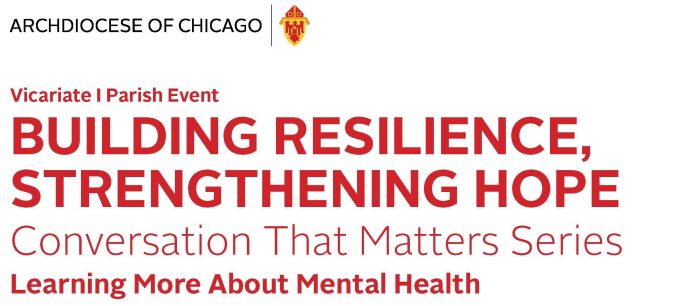Mental Health Series: Building Resilience, Strengthening Hope
 Many struggle with mental health issues. While anxiety, depression, and substance abuse (especially alcohol abuse) represent the majority of mental health problems, many also struggle with a diverse range of other psychiatric diagnoses such as bipolar disorder, schizophrenia, personality disorders, and sexual disorders. Mental health difficulties likely impact just about everyone when you consider not only their frequency in society but also the mental health problems experienced by family members, friends, and co-workers. When you add the significant additional stress of the COVID-19 global pandemic as well as the chronic challenges of unemployment, underemployment, discrimination, economic disparities, violence, abuse, injustices, and political polarization, these mental health difficulties become exacerbated.
Many struggle with mental health issues. While anxiety, depression, and substance abuse (especially alcohol abuse) represent the majority of mental health problems, many also struggle with a diverse range of other psychiatric diagnoses such as bipolar disorder, schizophrenia, personality disorders, and sexual disorders. Mental health difficulties likely impact just about everyone when you consider not only their frequency in society but also the mental health problems experienced by family members, friends, and co-workers. When you add the significant additional stress of the COVID-19 global pandemic as well as the chronic challenges of unemployment, underemployment, discrimination, economic disparities, violence, abuse, injustices, and political polarization, these mental health difficulties become exacerbated.
People of faith naturally turn to their religious traditions and communities for solace, consolation, and support when they, or their loved ones, suffer from mental health-related difficulties. Religious communities typically offer — often at no cost — a welcoming spirit of hospitality and practical support services such as food pantries, support groups, healing rituals, spiritual direction, and other services. But, clerics and pastoral staff members are generally not licensed mental health professionals and cannot professionally diagnose or treat the often serious mental health illnesses and problems brought to their attention.
Most mental health professionals such as psychologists, psychiatrists, social workers, and various types of counselors have little (if any) training or experience with religion and spirituality. Few have close collaborative working relationships with local clerics or religious institutions and organizations. Too often, there is a disconnect between the professional mental health communities and the religious and spiritual communities.
Overall, mental health and religious professionals can and should closely collaborate on matters pertaining to the mental health and spiritual functioning of their clients and congregants. They can and should use their their skills and expertise to work together synergistically for the greater good of all.
Due to the growing need for education and understanding of mental health, Vicariate I has decided to offer three meetings — see flyer for more information (click HERE).
This is the first of three scheduled meetings:
- October 23, 2022 from 3:30pm to 5pm at St. Joseph Parish (121 E. Maple Avenue, Libertyville, IL, 60048)
- December 4, 2022 from 3:30pm to 5pm at St. Edna Parish (2525 N. Arlington Heights Road, Arlington Heights, IL 60004)
- Third meeting time and location TBD
Registration will be available soon. A digital network resource guide will be available at the first session.
Tags: #buildingresiliencestrengtheninghope, #mentalhealth, #vicariate1


Comments are closed here.